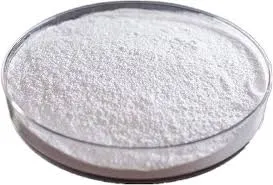
Nov . 11, 2024 10:26 Back to list
hydroxyethyl cellulose uses
Exploring the Uses of Hydroxyethyl Cellulose
Hydroxyethyl cellulose (HEC) is a water-soluble polymer derived from cellulose, a natural polymer found in the cell walls of plants. With its unique properties, HEC has become an essential ingredient in various industries, ranging from pharmaceuticals to personal care. This article delves into the diverse applications of hydroxyethyl cellulose, highlighting its versatility and significance in modern manufacturing processes.
1. Pharmaceutical Applications
In the pharmaceutical industry, hydroxyethyl cellulose is widely used as a binder, thickener, and stabilizer in the formulation of various medicines. Its ability to form gels and retain moisture makes it an ideal excipient in tablet formulation, enhancing the stability and bioavailability of active ingredients. HEC is also utilized in ophthalmic solutions, where it works as a viscosity-enhancing agent, ensuring that eye drops adhere to the surface of the eye for more extended periods, improving therapeutic efficacy.
Moreover, HEC is employed in topical formulations, including creams and ointments, providing a smooth texture and improving spreadability. Its properties enhance the delivery of active ingredients through the skin, contributing to more effective treatments in dermatology.
2. Personal Care and Cosmetics
The cosmetic industry relies heavily on hydroxyethyl cellulose for its thickening and emulsifying properties. It is commonly found in products such as lotions, shampoos, conditioners, and hair gels. HEC contributes to the consistency and stability of these products, ensuring that they maintain their desired texture over time. In hair care products, HEC enhances the gloss and texture of hair, making it easier to manage.
In addition to its thickening properties, HEC also acts as a film-forming agent in cosmetics. This characteristic is particularly valuable in products such as foundation and mascara, where it helps create a long-lasting layer without feeling heavy on the skin.
3. Construction Industry
hydroxyethyl cellulose uses

Hydroxyethyl cellulose has found a prominent place in the construction industry, particularly in the formulation of cement-based products like mortar and plaster. HEC improves workability and prevents sagging during the application of these materials. By enhancing water retention, it ensures that the mixture remains workable for longer periods, allowing for easier application and better finishes. Additionally, HEC contributes to the strength and durability of the final product, making it a critical component in modern construction materials.
4. Food Industry
In the food sector, hydroxyethyl cellulose serves as a food additive, known by its E number E462. It acts as a thickener, stabilizer, and emulsifier in various food preparations, including sauces, dressings, and dairy products. HEC helps maintain texture and viscosity, improving the overall mouthfeel of the product. Its ability to retain moisture is particularly beneficial in reducing spoilage, extending shelf life, and maintaining quality.
5. Textile Industry
The textile industry utilizes hydroxyethyl cellulose as a sizing agent in the treatment of fabrics. When applied, HEC improves the handling and processing of fibers, allowing for smoother weaving and knitting. Additionally, it enhances dyeing processes by improving the uniformity and penetration of color into the fabric. HEC’s non-toxic and biodegradable nature aligns with the growing demand for sustainable practices in the textile sector.
6. Environmental Applications
With increasing environmental regulations, HEC is also being explored for its applications in environmental remediation. Its properties enable it to be used in the formulation of biodegradable cleaning agents and materials that can aid in breaking down pollutants. HEC can help encapsulate contaminants in soils, facilitating their safe removal or degradation.
Conclusion
Hydroxyethyl cellulose is a multifaceted compound that plays a crucial role in various industries. Its ability to enhance the texture, stability, and performance of products makes it an invaluable ingredient in pharmaceuticals, personal care, construction, food, textiles, and environmental applications. As industries continue to evolve, the demand for HEC is expected to grow, driven by the need for innovative solutions that prioritize efficiency, sustainability, and product quality. As such, HEC's role in modern manufacturing processes cannot be overstated, making it a true backbone of many commercial applications.
-
Versatile Hpmc Uses in Different Industries
NewsJun.19,2025
-
Redispersible Powder's Role in Enhancing Durability of Construction Products
NewsJun.19,2025
-
Hydroxyethyl Cellulose Applications Driving Green Industrial Processes
NewsJun.19,2025
-
Exploring Different Redispersible Polymer Powder
NewsJun.19,2025
-
Choosing the Right Mortar Bonding Agent
NewsJun.19,2025
-
Applications and Significance of China Hpmc in Modern Industries
NewsJun.19,2025







